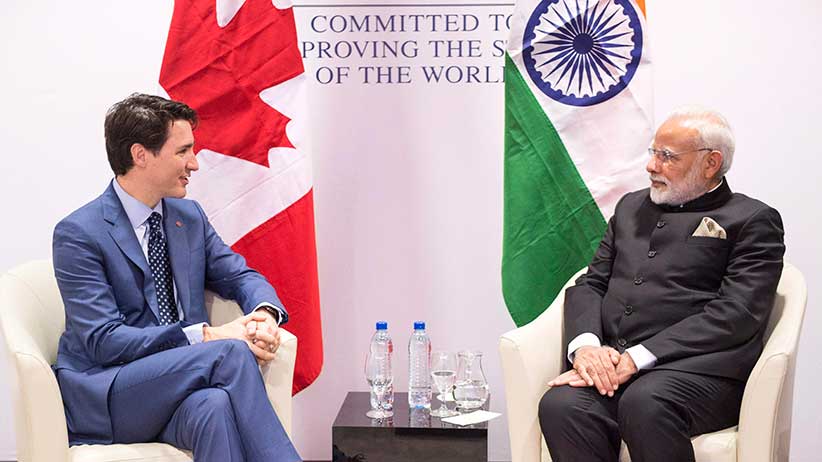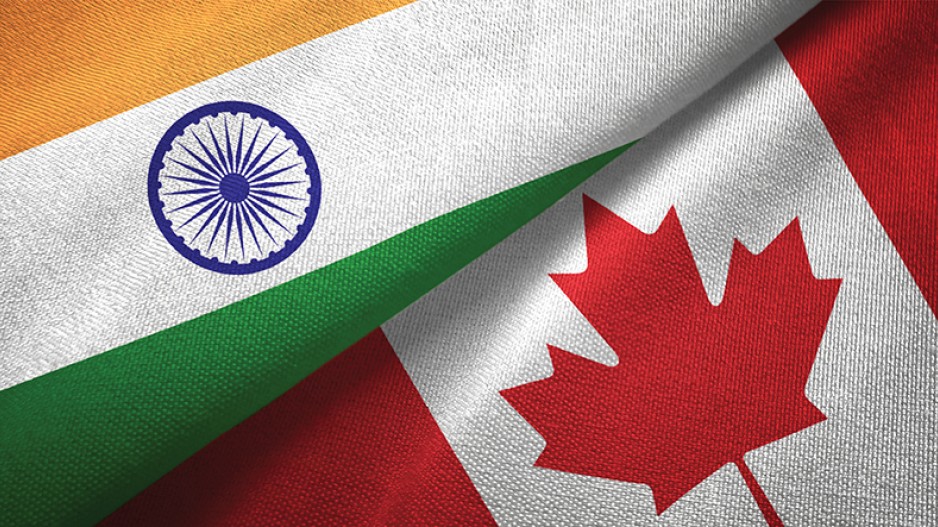Current Market Trend In India-Canada Trade War: Is It Coming?
The recent tensions between India and Canada are unlikely to have a significant impact on trade relations between the two countries in the short term.
- Will the recent tensions between India and Canada impact trade relations?
- Specific ways in which the diplomatic tensions could impact trade relations, Advice for Business
India and Canada ,impact trade relations
Current Market Trend In India-Canada Trade War: Is It Coming?
Will the recent tensions between India and Canada impact trade relations?
The recent tensions between India and Canada have raised concerns about the potential impact on trade relations between the two countries. However, experts believe that the impact is likely to be minimal in the short term.
India and Canada have a strong economic relationship, with bilateral trade in goods and services totaling over $11 billion in 2022. Canada is India's 10th largest trading partner, while India is Canada's 14th largest trading partner.
The two countries trade in a wide range of complementary products. India's top exports to Canada include pharmaceuticals, gems and jewelry, and machinery, while Canada's top exports to India include lentils, peas, and canola oil. This means that the two countries do not compete directly on most products, which reduces the likelihood of trade disputes.
In addition, India and Canada have a number of trade agreements in place, including the Canada-India Comprehensive Economic Partnership Agreement (CEPA), which was signed in 2010. The CEPA has helped to boost bilateral trade and investment in recent years.
However, there are some risks to the India-Canada trade relationship in the long term. If the diplomatic tensions between the two countries persist, it could create a more difficult environment for businesses to operate in. This could lead to a decrease in trade and investment flows between the two countries.
Specific ways in which the diplomatic tensions could impact trade relations:
- Increased tariffs and non-tariff barriers: India and Canada have a number of trade agreements in place, but these agreements could be suspended or canceled if the diplomatic tensions worsen. This would lead to higher tariffs and other trade barriers, which would make it more expensive and difficult for businesses to trade between the two countries.
- Reduced investment flows: Canadian companies may be less likely to invest in India if the diplomatic tensions continue. This is because they would be concerned about the political and economic risks associated with investing in a country with which their government is having a difficult relationship.
- Increased uncertainty and risk: Businesses need a stable and predictable environment in order to plan and invest. The diplomatic tensions between India and Canada are creating uncertainty and risk, which could make businesses less likely to trade with or invest in either country.
It is important to note that the diplomatic tensions between India and Canada are still relatively new. It is possible that the two countries will be able to resolve their differences and the tensions will subside. However, if the tensions persist, it could have a negative impact on trade relations between the two countries in the long term.
Advice for businesses
Businesses that trade with or invest in India and Canada should be aware of the risks associated with the diplomatic tensions between the two countries. They should take steps to mitigate these risks, such as:
- Diversifying their supply chains and markets: Businesses should not rely on a single supplier or market. By diversifying their supply chains and markets, businesses can reduce their risk exposure if there is a disruption to trade relations between India and Canada.
- Purchasing trade credit insurance: Trade credit insurance can protect businesses from financial losses in the event of a trade dispute or buyer insolvency.
- Staying informed about the situation: Businesses should stay informed about the latest developments in the India-Canada relationship. This will help them to identify and mitigate any new risks that may arise.
Impact for businesses
The impact of the recent tensions between India and Canada on trade relations is a complex issue with a number of factors to consider.
In the short term, the impact is likely to be minimal. India and Canada have a strong economic relationship, with bilateral trade in goods and services totaling over $11 billion in 2022. The two countries trade in a wide range of complementary products, and they have a number of trade agreements in place.
However, in the long term, the diplomatic tensions could create a more difficult environment for businesses to operate in. This could lead to a decrease in trade and investment flows between the two countries.
The impact of the diplomatic tensions on trade relations will also depend on the specific sectors and industries involved. For example, sectors that are more reliant on cross-border trade and investment, such as technology and financial services, are more likely to be impacted than sectors that are more domestically focused.
Overall, the impact of the recent tensions between India and Canada on trade relations is difficult to predict. However, businesses should be aware of the risks and take steps to mitigate them.
The Indian and Canadian governments should also work to resolve their differences and reduce the diplomatic tensions between the two countries. This would create a more favorable environment for businesses to trade and invest, and it would benefit the economies of both countries.
End of Conclusion
The recent tensions between India and Canada are unlikely to have a significant impact on trade relations between the two countries in the short term. However, businesses should be aware of the risks and take steps to mitigate them.
Writer
Devraj Gorai


























